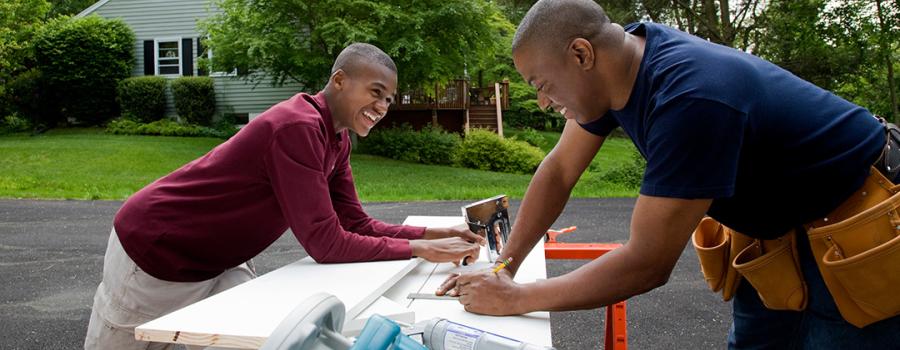The transition to adulthood and independence can be challenging for youth and stressful for caregivers, parents, and foster parents, who hope to provide the skills and knowledge needed for a youth to succeed on their own.
The Child Welfare Information Gateway outlines key areas to cover when assisting a youth in their transition to independence. Areas include: building supportive relationships and connections, managing money, finding and maintaining employment, maintaining health and wellness, and developing additional life skills.
Building Supportive Relationships and Connections
Permanent connections and supportive relationships are essential for youth transitioning to independence. Permanent connections can be any relationship that is family-like and supportive of the youth’s best interests, health, safety, and wellbeing.
Things Parents Can Do to Help:
- Ask youth to identify at least one reliable, caring adult in their life.
- Support youth in connecting with extended family or biological family members.
- Encourage peer support through engagement in age appropriate extra-curricular activities.
- Discuss the opportunity for a long-term relationship with the youth after they leave your care.
Managing Money
Unfortunately, many young adults do not have a lot of experience earning income. Therefore, they have limited experiences managing money, sticking to a budget, and learning about saving for the future. This creates a gap as youth often learn best through first-hand experience.
Things Parents Can Do to Help:
- Maximize everyday moments as an opportunity to teach lessons.
- Assist youth in opening a bank account.
- Practice developing a budget, outline expenses and expected income.
- For youth transitioning out of foster care, refer them to available Independent Living Programs.
Finding and Maintaining Employment
A young adult’s ability to obtain and maintain employment is crucial in achieving success and can contribute to greater life satisfaction.
Things Parents Can Do to Help:
- Help youth identify talents and interests related to employment.
- Provide opportunities for career exploration through career fairs or job shadowing.
- Help youth practice skills needed in obtaining employment and documents necessary for employment, such as social security card and photo identification.
- Coach youth on how to maintain employment, discussing communication with employers, arriving on time, and appropriate attire and attitudes.
Maintaining Health and Wellness
Youth transitioning to adulthood will need to maintain good health habits, secure insurance, and assess services, often doing this on their own for the first time. Youth may have medications they will need to manage on their own where previously others have helped.
Things Parents Can Do to Help:
- Promote healthy lifestyle and include youth in meal preparations and physical activities.
- Explain the importance of health insurance and the youth’s eligibility for Medical Assistance.
- Help youth understand when to seek medical attention and the different types of care.
- Assist youth in gathering medical records and medical history.
Developing Additional Life Skills
In addition to the areas listed above, it is essential for youth to understand daily living skills. Youth may need guidance which can occur during opportunities of practice in the home through chores and daily routines. Many of these skills can be demonstrated through modeling desired behaviors.
Things Parents Can Do to Help:
- Involve youth in routine household activities and chores.
- Discuss transportation, including public transportation and owning a car.
- Model adult-like behavior and discuss these behaviors.
- Help youth identify leisure activities that are safe and accessible.
These core areas can help guide youth in their transition to adulthood and obtaining self-sufficiency. Each youth has different strengths and knowledge when it comes to independence, so each strategy should be adapted to meet the individual goals and needs. Preparing them for the many challenges they may face – both big and small – is an important piece of the parenting journey and one that is never too early to start.
This blog article was contributed by Brooke Biederstedt, Director of Independent Living Services, for Nexus-PATH Family Healing.
Nexus Family Healing is a national nonprofit mental health organization that restores hope for thousands of children, families, and adults each year through services in community mental health, crisis and stabilization, foster care and adoption, and residential treatment. For over 50 years, we’ve used innovative, personalized approaches to heal trauma, break cycles of harm, and reshape futures. We believe every child is worth it — and every family matters. Access more resources at nexusfamilyhealing.org/resources.
